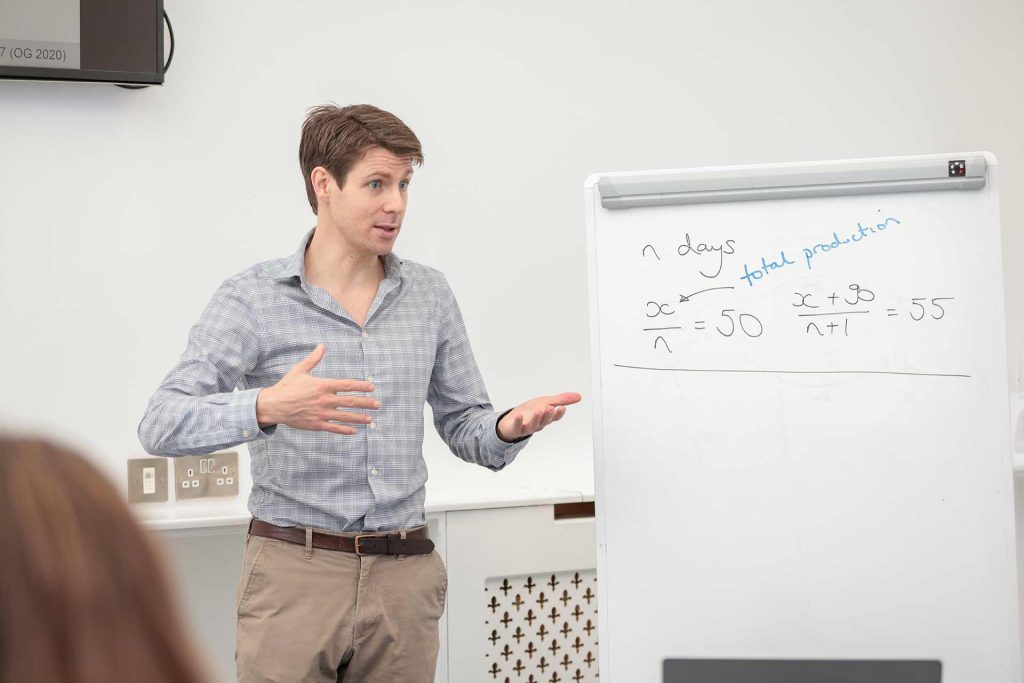
If you’re applying for an Executive MBA and have been told that you need to take the Executive Assessment (EA), then
The bad news is that the EA may be a shorter exam in terms of duration (90 minutes versus 3+ hours for the GMAT), but it contains almost all the same content as the GMAT. The claim that the EA requires ‘minimum preparation’ is somewhat misleading. If you’re really unfamiliar with the skills required, then preparing for the EA could take you as long as preparing for the GMAT.
The other bad news is that, in my experience, older candidates for both the EA and the GMAT often find the experience more uncomfortable than younger candidates. Perhaps it’s because you left full-time study some decades ago and may have forgotten high-school Math. Also, by your stage of life you’re likely more accustomed to telling others that they’re wrong rather than being told that you’re wrong. On top of this, EA candidates are typically very short of time to study.
There is good news, however. That uncomfortable experience will likely be useful for you. Check out my article ‘What’s the point of this GMAT thing anyway?’ – all that reasoning applies to the EA.
In addition, the scores that schools require for the EA are typically lower than the equivalent GMAT scores that they require from full-time MBA candidates. Sensibly, schools tend to see EA scores in the light of “good enough”, i.e. if your score above a certain mark they can be reasonably confident that you’re ready for their Executive MBA course and can move on to evaluating other parts of your application. Beyond that level, your EA score is unlikely to impact your application (this is in contrast to the way GMAT scores work for full time MBA applications).
Finally, because the question types on the EA are the same as for the GMAT, most GMAT resources – including the material on this website – will be relevant to your EA study.
Top 5 suggestions for EA study:
1) Take a practice test. (https://www.mba.com/exams/executive-assessment/prepare) Find out what you’re up against. I recommend focusing on official resources rather than resources from test prep companies, which can be variable in quality (see my article ‘GMAT resources – an overview’)
2) Learn from your mistakes. Check out my article ‘GMAT study, fast and slow’ for an overview of how to spend your study time effectively.
3) Do official practice problems. The ‘Official Practice Questions’ sold here (https://www.mba.com/exams/executive-assessment) should be sufficient for your studies. Consider purchasing the GMAT Official Guide if you need more material.
4) Focus primarily on strategies; pick up content along the way. The content side of the EA is little beyond high school Math and a good grasp of written English. You might need to take a few diversions from your study to cover a few unfamiliar concepts, but doing extensive foundational work is usually inefficient. The Quant and Verbal strategies on this website will likely be useful.
5) Take a little-and-often approach to organising your study time. I’ve had good success with students doing most of their study in 10- or 20-minute sessions.


GMAT Study Skills - creative materials to support the motivated GMAT student